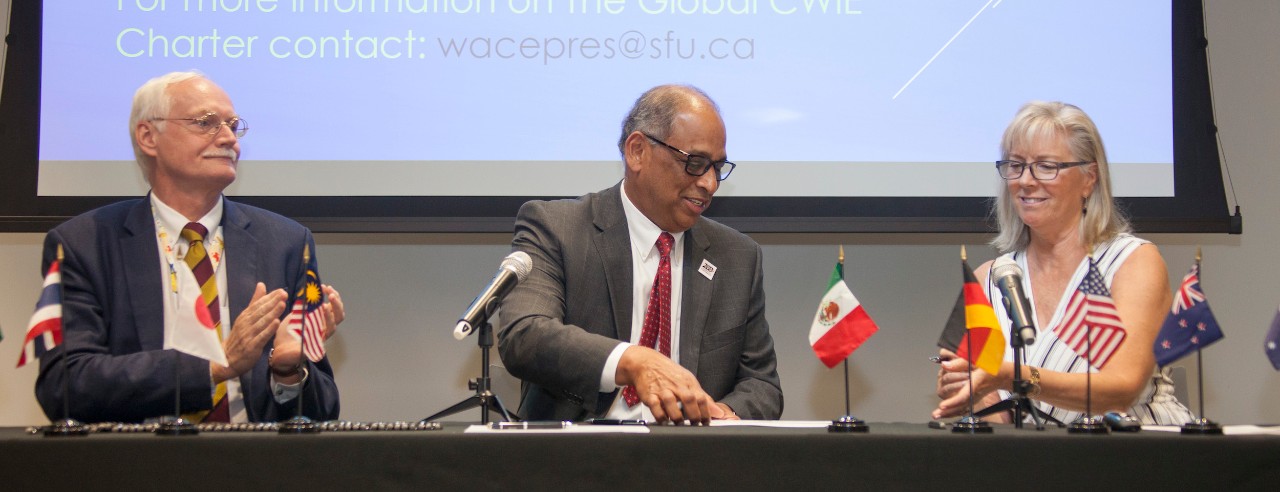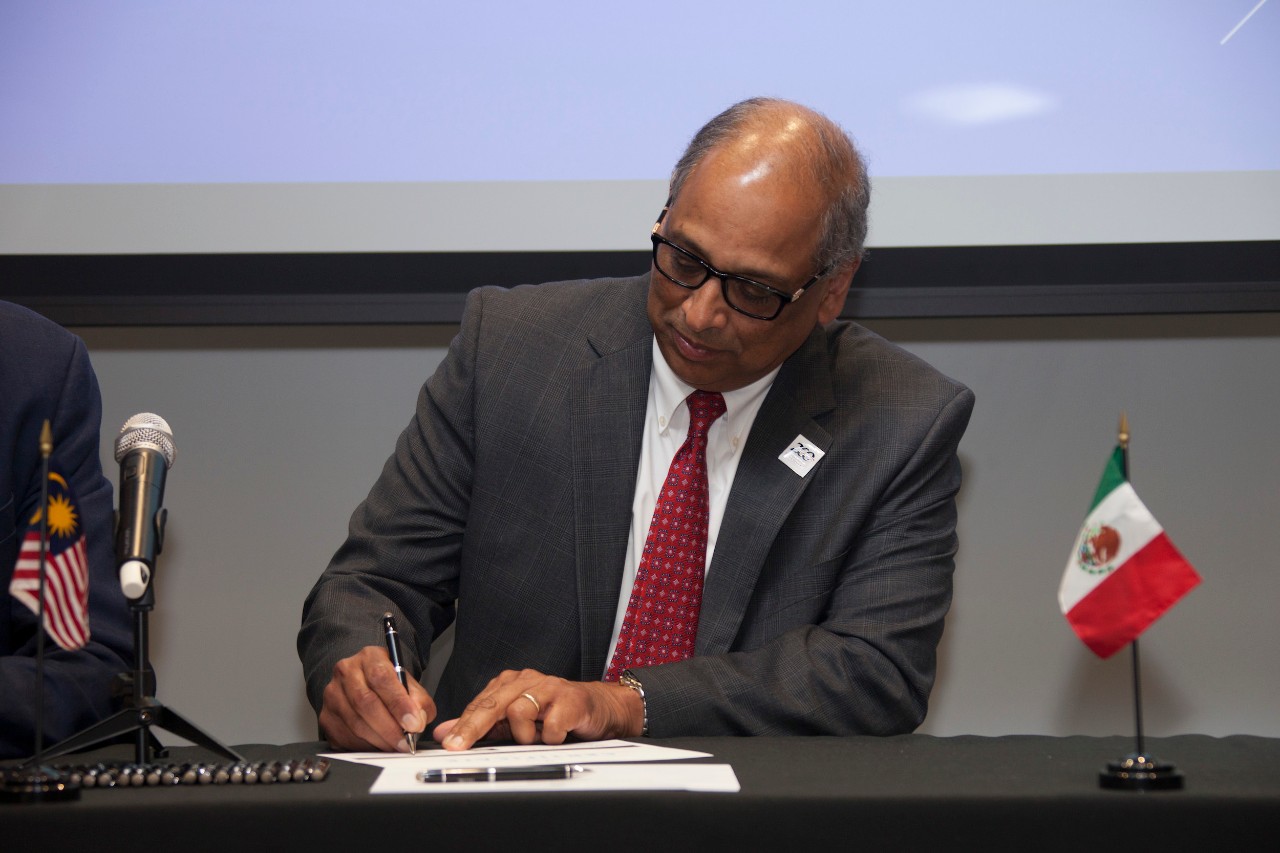
UC signs first-ever Global Charter for Co-op and Work-Integrated Education
Charter signatories agree to create more and better international work-integrated educational experiences for students
More than 50 university presidents, education association executives and high-ranking government officials, including University of Cincinnati President Neville Pinto convened at UC’s 1819 Innovation Hub to sign the first-of-its-kind Global Charter for Co-op and Work-Integrated Education.
“It’s truly an honor for the University of Cincinnati, as the birthplace of cooperative education, to be the first signatory on the Global Co-op and Work-Integrated Education Charter,” said Pinto. “This charter will help create what’s next in global work-integrated education. It aligns with our university’s own strategic direction and our promise to re-imagine co-op.”

UC President Neville Pinto is the first to sign the Global Charter for Co-op and Work-Integrated Education on Monday, Aug. 5, at the WACE Global Conference Presidents Summit, held at the UC 1819 Innovation Hub. Photo/Ravenna Rutledge/UC Creative Services
The inaugural signatory organizations — among which, 14 countries and five continents are represented — formalized a commitment to grow the number and quality of international co-op and work-integrated education opportunities for students around the world. By engaging and uniting with their employer partners to provide access for all post-secondary students to international work-based experiences, these organizations will more effectively prepare students for productive and rewarding employment anywhere in the world.
“The rapid pace of change in business and industry, the increasingly global nature of employment and equitable access for all are themes that need the collective attention of employers and educators,” says Nancy Johnston, president of the World Association for Cooperative and Work-Integrated Education, which led the effort to create the Global Charter. “Work-integrated education is a proven model that brings these stakeholders together during the course of a student’s academic studies so that these challenges can be addressed in real-time, authentic ways that contribute to both a student’s learning and their workplace readiness.”
Charter organizations agree to answer three calls to action:
Create a significant number of new opportunities for students of Charter supporters to obtain meaningful, international, work-integrated experiences, with a focus on scaling up;
Develop and deliver educational offerings specifically designed to enhance student intercultural fluency and resilience with focus on equity, diversity and inclusion;
Facilitate conversations between higher education and business to determine what constitutes “global work readiness”, and embedding these attributes in a global quality assurance framework.
The University of Cincinnati Board of Trustees approved the creation of the first-ever cooperative education program in 1906. Since then, co-op has spread around the globe and inspired additional models of work-integrated education that reflect the changing needs and opportunities of today and the future. With technology making the world smaller and cultural fluency more important than ever, the Global Charter addresses a rapidly growing need of the global economy.
See the full text of the charter.
Featured Image: Neville Pinto, center, shares a moment with WACE President Nancy Johnston, right, and WACE Co-chair Maurits van Rooijen after Pinto signed the Global Charter for Co-op and Work-Integrated Education. Photo/Ravenna Rutledge/UC Creative Services
Related Stories
Seven common startup challenges and how to solve them
April 3, 2025
Launching a new business isn’t an easy endeavor, but it’ll be simpler for entrepreneurs who consider common startup challenges and plan out ways to solve them.
Hands-on experiences, real-world impact
April 3, 2025
University of Cincinnati second-year medical sciences student Jay Patel is pursuing his passions as founder of the Dahyabhai Foundation, a cancer researcher and a Portman Fellow.
UC Honors students gain hands-on research experience
April 1, 2025
The Biomedical Research and Mentoring Program is open to any University Honors Program students. The faculty mentors are typically from UC’s College of Medicine or Cincinnati Children's Hospital.
